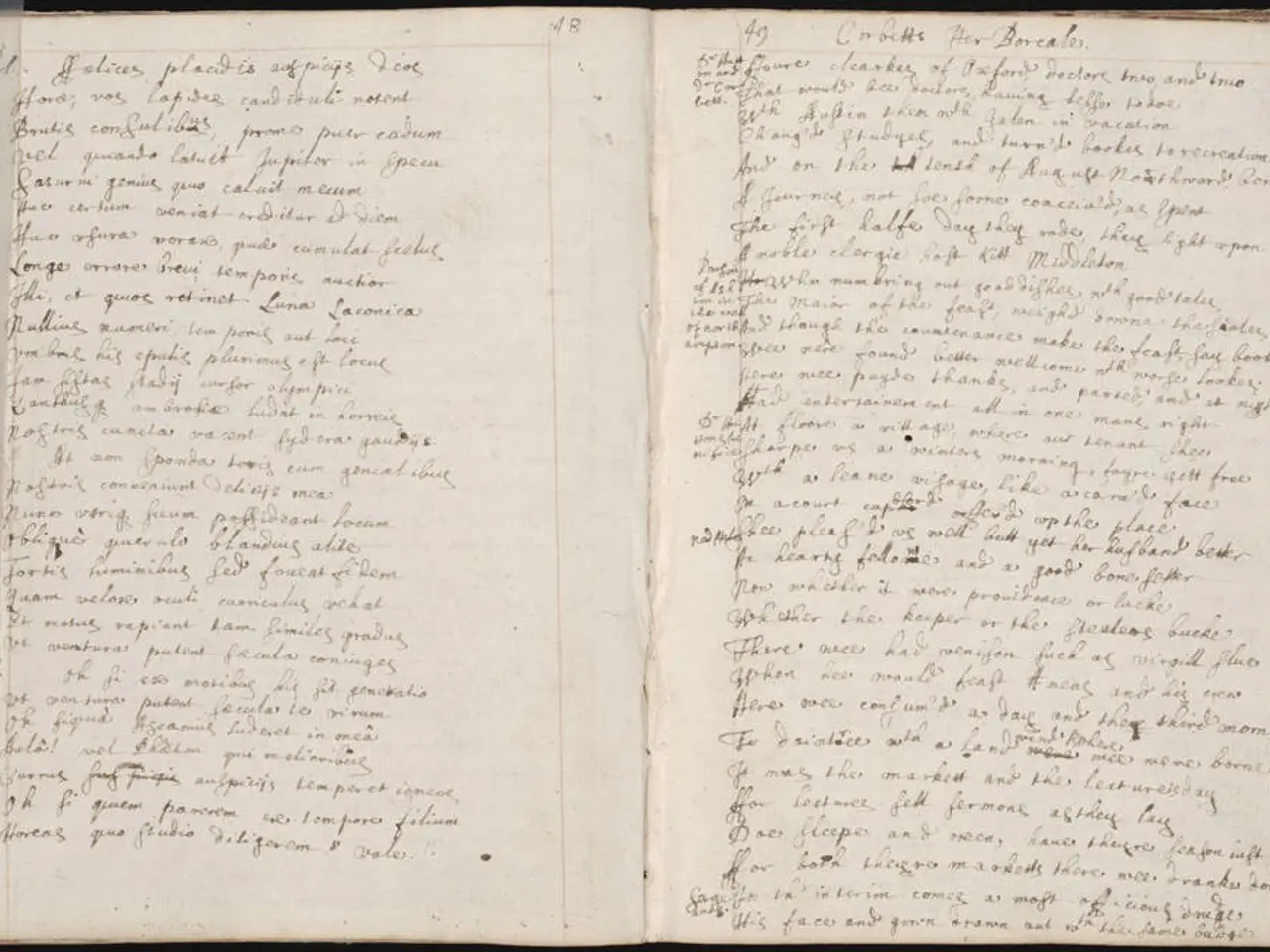Delving into Existentialism's View on Life's Meaning and Significance
In the 19th and 20th centuries, a philosophical movement known as existentialism emerged as a response to the rise of scientific reasoning and the decline of traditional religious structures. This philosophy, which emphasises personal freedom, choice, and responsibility, offers a counterpoint to nihilism, suggesting that while the universe does not offer inherent meaning, we have the freedom to create it through our choices and actions.
Existentialism posits that life does not have a predetermined or inherent meaning; instead, individuals must create their own meaning through their choices and actions. This idea, often referred to as "existence precedes essence," means that humans first exist without a fixed nature and only later define themselves by how they live.
Albert Camus, a prominent existentialist thinker, discussed the concept of the "absurd" as the tension between humans' desire for meaning and the universe's indifference. He explored the idea of the absurd and how individuals must live authentically in a meaningless world.
Radical freedom is another key element of existentialism, asserting that individuals are free to act and make choices, without being determined by external forces like society, religion, or tradition. However, this freedom comes with a heavy burden, as individuals are responsible for the consequences of their choices.
Transcendence, in existentialism, refers to the act of going beyond the limitations imposed by societal expectations or external circumstances through our choices and intentional decisions. Passion and commitment are essential components of finding meaning in life, as they drive us to actively engage with what truly excites and matters to us.
Friedrich Nietzsche, another influential figure in existentialism, argued that humans must overcome nihilism and create their own values, famously declaring that "God is dead." Søren Kierkegaard, often considered the father of existentialism, focused on the individual's relationship with God and the concept of faith.
Jean-Paul Sartre took existentialism into the realm of radical freedom, asserting that existence precedes essence and that individuals are responsible for creating meaning in their lives. Authenticity, in existentialism, involves being true to oneself rather than conforming to external expectations or societal norms.
The existentialist path calls on each of us to take full responsibility for our lives and actively engage in the process of meaning-making, for it is through this process that we discover our true purpose. By embracing our freedom, making conscious choices, and living authentically, we can create meaning and purpose in a universe that, in the words of Camus, may be indifferent to our existence.
[1] Existentialism: A Very Short Introduction by Thomas Flynn [2] Existentialism: Basic Writings by Jean-Paul Sartre [3] Existentialism and Human Emotions by Karl Jaspers [4] Fear and Trembling by Søren Kierkegaard
- In the realm of existentialism, individuals are tasked with creating their own meaning in life through self-reflection, choices, and actions, as suggested by Jean-Paul Sartre.
- Albert Camus, a renowned existentialist philosopher, elaborated on the absurd – the tension between human desire for meaning and the universe's indifference – and the importance of living authentically in a meaningless world.
- The concept of radical freedom in existentialism proposes that individuals are not determined by external factors like society or tradition, but rather are free to make conscious choices about their personal growth, values, and beliefs.
- Education and self-development play a crucial role in understanding existentialism as evidenced by texts like Thomas Flynn's "Existentialism: A Very Short Introduction" and Jean-Paul Sartre's "Existentialism: Basic Writings."
- Personal growth, autonomy, and existentialism are intertwined in the philosophy of Friedrich Nietzsche, who encouraged humanity to overcome nihilism by creating their own values and taking responsibility for their beliefs.




